Common Mistakes from Past Contest Entries: Things to Avoid
Really good science fiction functions both as compelling narrative and as thought experiment. It lets us consider complicated questions such as how would our understanding of ourselves be changed by the discovery of extra-terrestrial life and how would human life be different if our basic needs were met? It asks us to reconsider our assumptions about almost every aspect of life as we know it, troubles our ideas of borders and limitations, and asks us to reconsider our most basic beliefs about the nature of the universe. It identifies the problems our solutions to today’s problems will likely cause us tomorrow. It is, often, deeply involved with questions of ethics and philosophy. Good science fiction doesn’t ignore reality; it engages it in a deeply critical way.
Have you seen the movie Prometheus? It’s a visually stunning movie, but it’s really bad science fiction. It not only doesn’t engage reality in a deep critical way, it barely acknowledges reality. For instance, there is a sophisticated medical system– geared only to work on male bodies– that doesn’t balk at discovering a uterus inside its patient. There is a super-intelligent robot that shines a flashlight on a hologram to see it better. And, worst of all, there are scientists who tell each other not to be skeptical and say they believe “what they choose to believe,” rather than what the evidence supports.
This is make you mad at the writers level bad. And, as writers, that’s usually not the response we’re hoping for from our audience. So, how do you avoid writing bad science fiction? I’ve spent some time rereading old submissions to past contests, looking for the most common flaws. Here is my list of the top five mistakes that past contest entrants have made, and how you can avoid them:
5. That can’t be racist, that character isn’t even human: I’m shocked at science fiction writers who make this mistake. Did we learn nothing from Jar Jar Binks, folks? But, sadly, I’ve seen a lot of stories submitted here in which the evil others (aliens, robots, etc.) are clearly based on degrading cultural stereotypes. This is hard to spot in one’s own writing. We can assume that if George Lucas had had the critical awareness to recognize that Jar Jar would be seen by viewers as a “Rastafarian Stepin Fetchit on platform hoofs,[1]” he would have made changes before the film was produced.
So how do you watch out for this one? Have trusted readers who will call you on this, and listen to them. One of the difficult things about writing is that it sometimes makes us, as writers, confront issues in ourselves about which we aren’t aware until they show up on the page. Be open to hearing this criticism.
4. And now, in a few short pages, I’ll solve the problem of faster than light travel… Lots of science fiction requires that the reader accept that certain very difficult problems have been solved and technologies have been developed as a result. This is why it’s science fiction. The problem for our entrants has come when they try to explain how the new technology works in their science fictional future. Science fiction should respect science; don’t tell me that faster-than-light neutrinos were the key to solving the biggest problem in space travel, or populate your future earth with creatures evolved from the now-debunked arsenic-based life-form supposedly found in a Californian lake.
How can you avoid this problem? Don’t try to explain something currently inexplicable. Just tell us that your ships have faster than light drives, or that the creatures in your future have learned to metabolize arsenic, but don’t try to tell us how unless you are an expert in the particular field of science about which you’re writing.
3. This is fiction, I don’t need science!: While some ambitious writers try to solve the major scientific problems of our day, others ignore some the basic laws of physics, chemistry, biology, and sometimes just common sense. It may be the future, but if you’re going to send your characters on a deep sea dive, you either have to give them some fancy new equipment or you have to limit the depth of their dive. Don’t send characters in SCUBA gear down 2500 feet and expect us to believe that they make it back unscathed.
The key to avoiding this problem is simple: research. Online research is good, real life research is better. If you’re going to include a deep sea dive in your story, ask a friend who dives about the limits and issues involved.
2. And then everything changed… Science fiction is very forgiving of stories that rely on a sudden change to drive the plot: the aliens appear, the bomb is dropped, the world stops spinning and the stars disappear. Deus ex machina isn’t a writing crime in science fiction, but the sudden change needs to be really, really big and it needs to make logical sense that nobody saw the change coming. Because we—as readers of science fiction—are so used to plots that hinge on unanticipated change, as writers we can be a little too comfortable using the same plot device when we shouldn’t. A character shouldn’t find a ray gun lying discarded in an alleyway at the exact moment that he needs one to save himself from the killer cyborgs unless the author has already set up the expectation that there are discarded ray guns all over the place in the world of the story. A timid character shouldn’t become inexplicably daring simply to move the plot along. There must be a logical flow to the way in which events unfold.
Avoiding this problem is often simply a matter of revision. We don’t always know what our characters are going to do when we set out to write a piece. Maybe you hadn’t planned on the shoot-out between the protagonist and the cyborgs when you started the piece. Once you know it’s going to happen, though, it’s better to go back and rework the protagonist so that he has a reason to already have a ray gun than it is simply drop one into the alley. Often, it’s necessary to move backward through the story once you’ve finished the first draft and add the elements that make the narrative arc possible.
1. In science fiction, the quality of the writing doesn’t matter as long as the story is good: There was a time when this was almost true, when a really original story could get published and be well received even if the writer didn’t have a particularly strong writing voice. But the genre has matured and been shaped by such great writers as Asimov, Heinlein, Bradbury, Neal Stephenson,Vernor Vinge, Octavia Butler, Erin Morgenstern… the list goes on and on. Craft issues are as important in science fiction as they are in literary fiction now, I would argue, because of the great talent of these writers. The genre is now too mature to embrace writers who haven’t learned to craft their prose to the needs of their stories.
There is a lot of strange angst over the question of whether or not someone can be taught to write. Angst which, I confess, I don’t really understand. If your child showed a talent for, say, composing music, you wouldn’t tell her to go sit alone in a room with a piano and do her best. You would send her to a conservatory, where she would learn notation, music theory, structure, form, etc. The same thing is true for people who want to compose prose: there are craft elements which must be learned. No one can teach you to have good ideas for stories, but you’re writing science fiction, so ideas are probably what you’re good at already. But writing isn’t something that most of us can learn simply by reading and through practice. We need input from other writers and readers to see where we are accomplishing our goals and where we are falling short. We need to understand grammar and sentence construction at a deeper level than most folk. We need to have a strong knowledge of the tools we use to tell our stories. I encourage every writer to seek out opportunities to workshop stories, develop a circle of trusted readers, and to read like a writer. Notice how a writer you admire constructs a phrase, builds a plot, brings a character to life. Pay attention to the nuts and bolts of how the words fit together on the page. Buy a copy of The Elements of Style. Take a class or attend a conference. Because, ultimately, a good idea won’t survive poorly crafted prose any longer. Science fiction has grown beyond that, and you will be competing with writers who have taken the time to develop these skills every time you submit your work to an editor.
Before I close, I want to say that while these are the five most common problems, it’s also true that there is absolutely nothing wrong with most of the submissions I’ve read to this contest. The writing is strong, the stories are original and well-developed, and it is always difficult to choose a single winner. Each year, the list of stories I wish we could have published is longer than the list of stories that were hindered by the flaws I’ve listed above. But each story that gets it right does so in its own, unique way. The stories which fail—few though they are—often fail for reasons they share in common with other failed stories. Learn to avoid those common problems, and your stories will find their audience.
[1] Morgenstern, Joe (May 19, 1999), “Our Inner Child Meets Young Darth”, The Wall Street Journal (Eastern Edition): A20








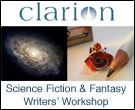



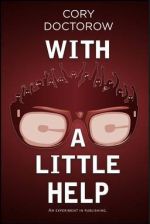
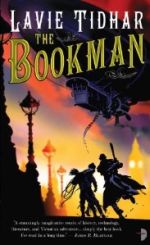
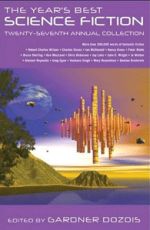


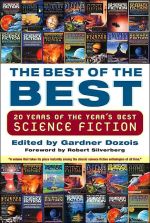
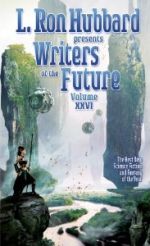

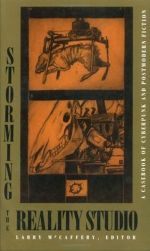



3 comments
[…] http://redstonesciencefiction.com/2012/07/common-mistakes/ by Sarah Einstein Share […]
[…] have added Sarah Einstein’s excellent essay – Common Mistakes from Past Contest Entries: Things to Avoid – which does a terrific job of isolating correctable mistakes she has seen in her three years as […]
What if you are an editor and copy-editing is not your strong point?